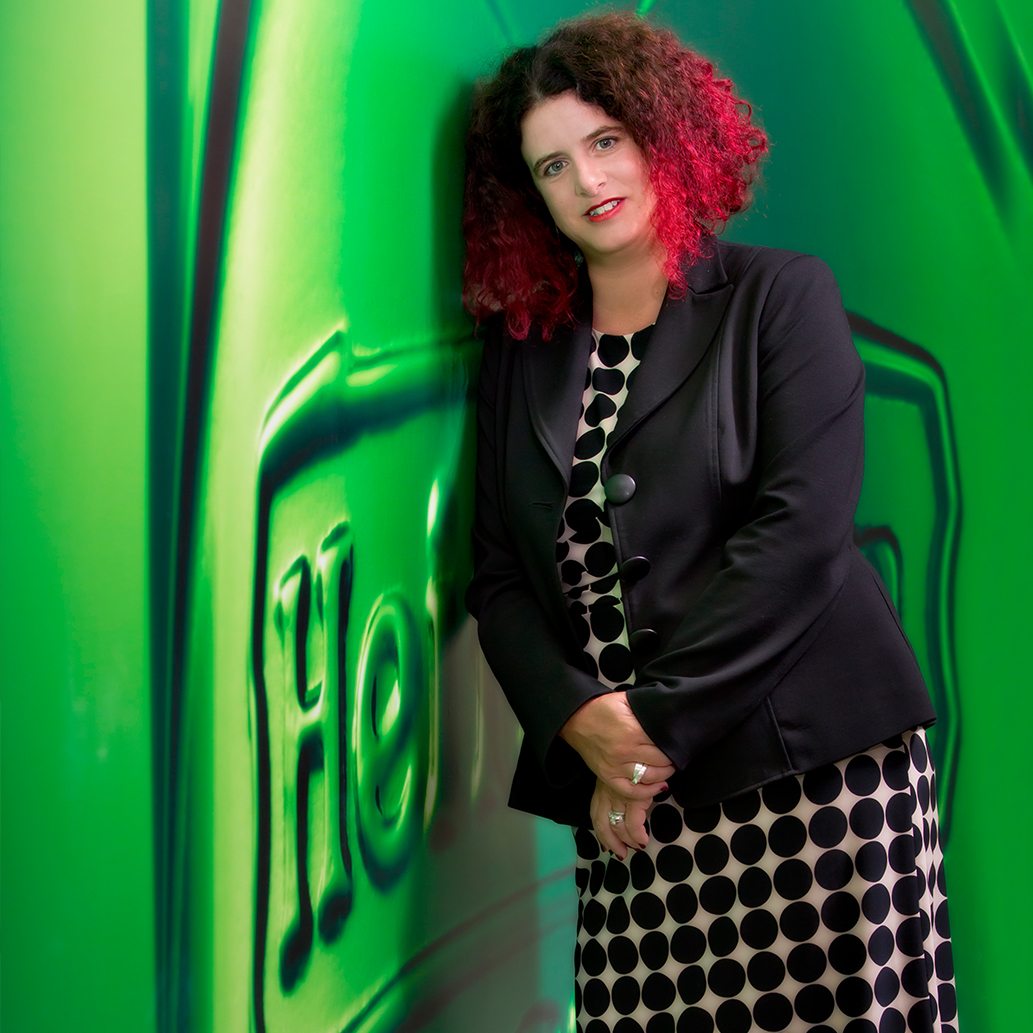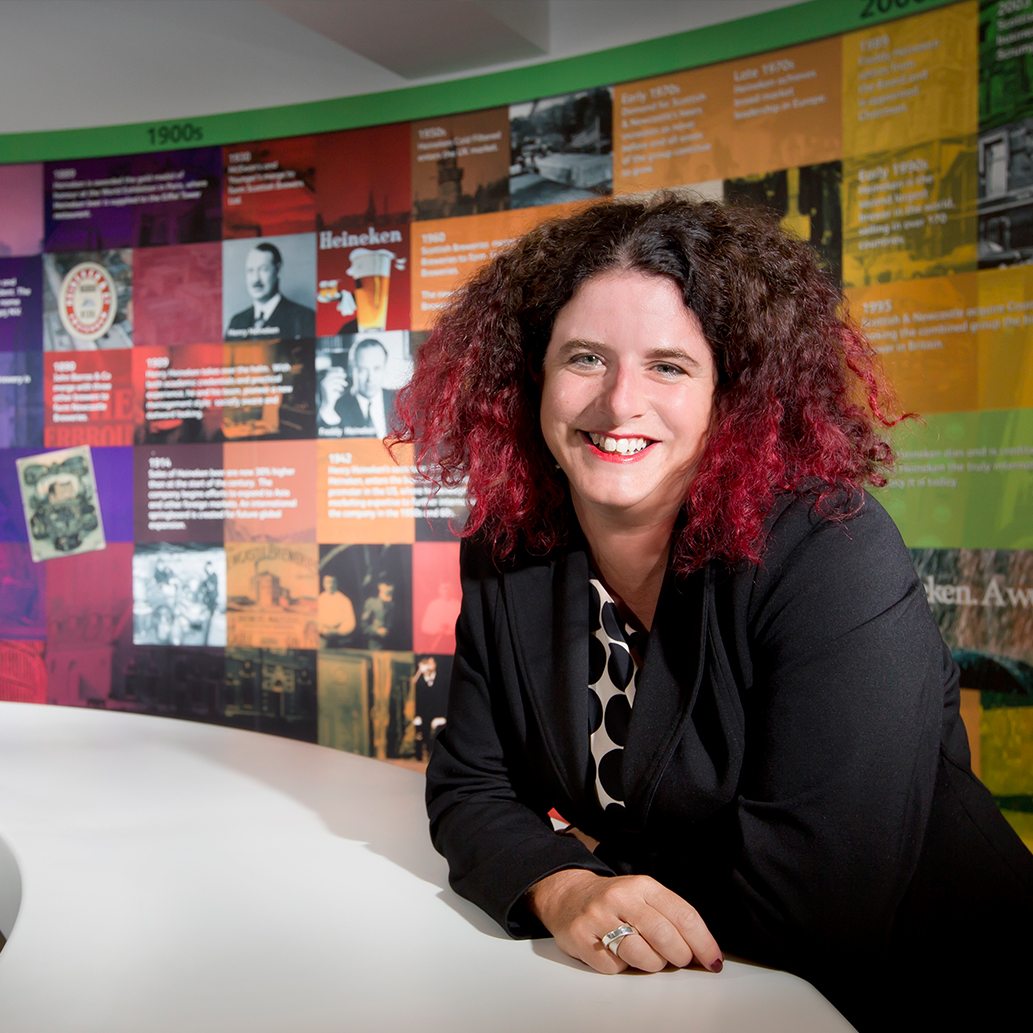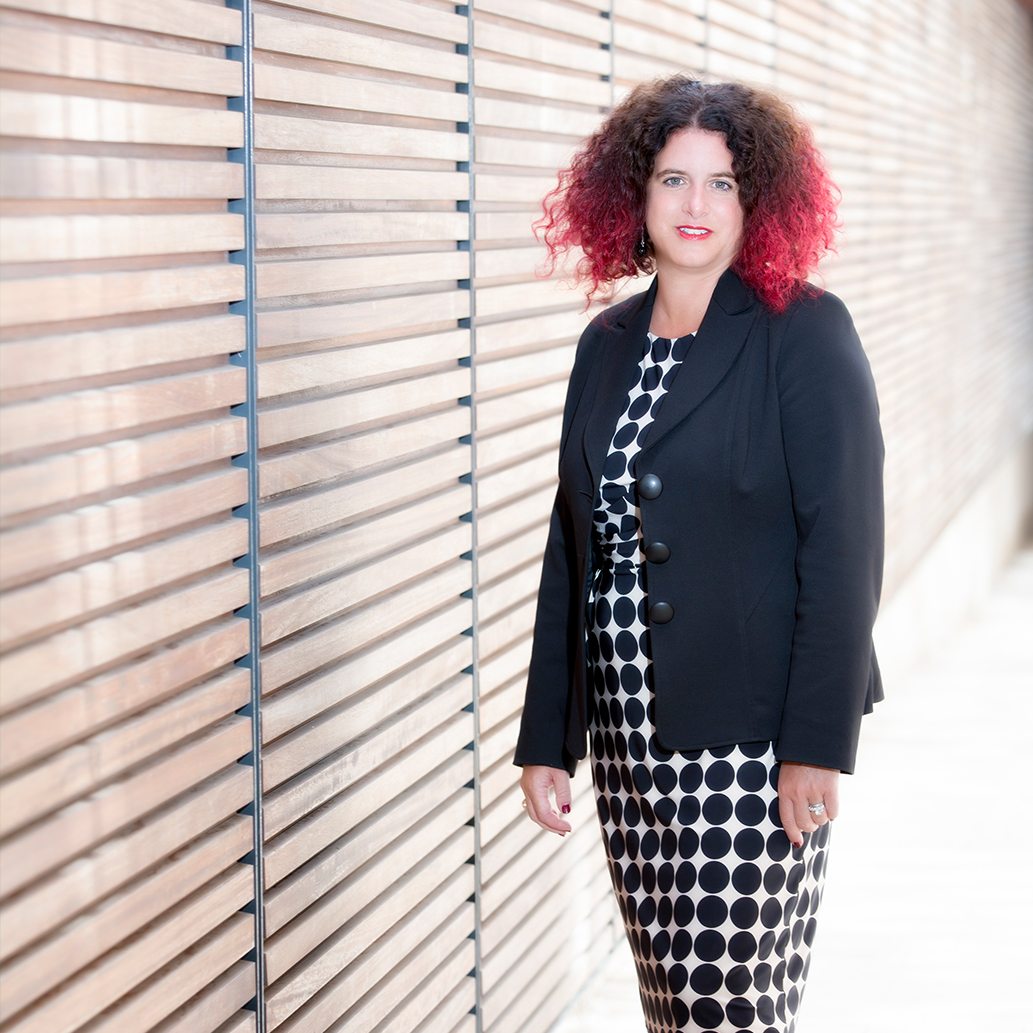
I pretty much knew at the age of 15 that I wanted to pursue a career in HR and work in an area that required an understanding of how people work, and this encouraged me to study Psychology at University. I then applied to IBM as a graduate and joined as their first female HR graduate at their Research & Development site in Winchester. As I progressed through IBM, they sponsored me to do my CIPD and Masters Degree in HR. I then joined Tesco for a couple of years and had a great time, got some real commercial experience and was a Deputy Store Manager at the same time. It was the part of my career where I became what I call “streetwise”. Then came an offer to go back into technology, and I joined a financial software company called CODA which was subsequently acquired by a Dutch company called Baan. I spent a lot of work time on the road, helping to grow the business around the globe and sharpening my operational skills as an international HR professional. It was a really great time in my life, hugely challenging but rewarding too. I had to grow up fast at a pretty young age.
Then I was headhunted by Yahoo! at a time when the dot com industry was in its boom time. It was a chance to join an already iconic and pioneering brand, and it was too good an opportunity to miss. I built Yahoo! Europe’s people strategy from scratch, really working my socks off through those years of massive growth. Of course, the bubble eventually burst, presenting the opposite challenge, where we went from motivating millionaires (on paper through stock options), we had people retiring at 27, to downsizing and putting a business into turnaround mode.

Yes, but what I’ve always believed about HR is, it has to lead with its chin, from the front, shaping a business and supporting growth with sound and sustainable people strategies. At Yahoo! we committed to delivering HR practices and platforms that clearly differentiated us from everyone else; and could be applied consistently across Europe. The challenge for Yahoo! at the time was trying to drive global practices and expansion from a headquarters in the US to markets at different stages in their evolution. In a turnaround mode you need to balance the need for significant structural change and cost control, whilst maintaining people engagement, morale and fundamental business performance.

You often still hear “we’re different” when trying to implement initiatives across multiple countries, so when trying to develop strategy, your underlining framework must be consistent, but it’s about scalability, flexibility and interpretation at a local level. Language and culture is of course different in every market, so you need to have umbrella frameworks that respect this, but at the same time deliver consistent global output where it matters most.

I had my second child and this actually provided a useful time to recalibrate myself. We got some rare breed sheep and some hens and went into small scale farming. I’d gone from a period of non-stop work and extensive travel which had propelled a fast-track career, to a life of serenity and reflection. A year later, recharged and re-energised, I was back in career mode and started at BT, initially as a consultant, and then was asked to join permanently. I had an interesting time at BT, again a massive brand and a build for me on the previous challenges, through being able to work in a very large UK corporate with mature HR practices. Then along came the opportunity at HEINEKEN. I had never seen myself in the brewing industry but the role was compelling and I jumped at the chance with great excitement. The first thing that came to mind was, I knew the brand and had even sampled a few of their products, but it had never crossed my mind to work in this sector. I went to the meeting, listened to what they had in mind, went home that evening and thought, “what the heck, I’ll go and meet the MD”! Two weeks later I had resigned from BT and came to HEINEKEN… and I love it more than I could ever have imagined.
I had to learn a great deal very quickly and I guess that’s drawing on your experiences, and down to how you use the tools and resources available to you. My attitude is that you can quickly learn the technical side of this function, but it’s how you go about it that makes all the difference. A big part of that is getting people on board and aligned in the right direction, really believing in what we’re all trying to deliver. It’s also about intelligence, so at that time I watched and learned from what other organisations were doing; then worked out how we could do it quicker and better in our culture. But success in any business, regardless of sector, is always about how you engage people; you cannot achieve anything transformational without taking people with you on that journey.
I think when you look back over the last ten years; brand image has become all-important, to the point that it is now a large part of why people work for a particular organisation. Some brands are quite remote and you’re not sure what they’re about, whereas others are intrinsic to the business and even inform decision- making. For example at HEINEKEN, “if decisions don’t nurture, reflect or support our brands then we won’t do it”. So, for a business such as this you can be sure that what our brands represent from an external point of view, need to reflect the same values for our employees internally too. Reflecting on that, it was definitely attraction to the brand that got my interest – the TV ads, in the bars, the supermarket aisles and the global sponsorships such as; UEFA Champion’s League, the HEINEKEN Cup, and the new James Bond film Skyfall. That hooked me and the creativity and pace of the culture took me right back to my days at Yahoo!
I met the MD, Stefan Orlowski, and he had not been long appointed to the role from another senior role within the Group. I was to be his first external appointment to the Executive team and we talked about the need for HR to support his vision and strategy for business growth in a mature market. I saw a fantastic opportunity for transformation, which is what I have loved doing all throughout my career, and we just clicked immediately. I knew we’d have a great partnership from the first day we met. We talked about the UK ambition; Heinken was already the UK’s number one beer and cider maker, but he wanted it to be the most admired operating company globally. We talked about a number of strategic priorities that weren’t in place at that point and we talked about how the people strategy would need to support that ambition. That’s it, that’s why I’m here and we are already well down the road of achieving these jointly held ambitions. It was certainly a daunting prospect moving into a new sector, but great brands-led organisations have much in common.
I’ve found that the best way to get a grip on a situation is to listen and watch first; you see things that work, things that can be improved and aspects that are missing. But you don’t just throw yourself in and hope to bring changes on a superficial level. So I emerged from this discovery period with a clear set of priorities, some high impact quick wins and started the groundwork to tackle these from the bottom up. I was fortunate to inherit an engaged and motivated group of colleagues, who would be crucial in shaping that vision for the organisation. This allowed me to articulate the longer term journey and, in the meantime, I embarked on a programme to rejuvenate the HR function and up our game in terms of both delivery and credibility.
Our people strategy had four simple elements; it was around embedding our culture and values; recruiting and developing talent and managing performance and rewarding contribution. Everything we did, and are still doing, is built from those key pillars. I did a leadership satisfaction survey on the HR function, a brave thing to do in the first year, and it scored in the low 20s out of 100.
It was a very hard message to deliver – “well the scores say we’re not delivering” but it was the right thing to do. It was even harder to contemplate what needed to be done to turn it around. This was a big wakeup call for the function and some people rose to that challenge, others didn’t. I had to make some very tough decisions, and many of the original HR function aren’t here anymore. We now have an HR team that not only wants to be part of the journey, but also provide the map and compass, which I think is incredible! There aren’t many HR teams that have transformed as much as we have in two years and delivered large scale change programmes at the same time. Off the back of that, our company-wide satisfaction scores are up massively. We’ve recently gone back out and surveyed to a point where we are now scoring 70s and 80s, which proves we are doing the right things, but we still have a way to go.
Personal development and reward & recognition programmes are delivering for our people and we are being recognised by winning awards, both internally and externally. Victims of our own success, we are now a net exporter of talent to other HEINEKEN operations across the globe. On a personal basis, some of this was new for me as I’d never worked in a large scale manufacturing environment before, but that was always part of the attraction. Half of our colleagues are in production or logistics, and we’re spread right across the UK. So it’s a challenge to get stuff out there fast and to a diverse group of people and roles. The skill is being able to develop HR practices which are as fit for a Bottling Operator or FLT driver in a brewery, as they are for a finance leader or marketing manager at head office – and this has been a real learning experience.
It’s a balance of flexibility, agility and consistency to get the best out of that process – too much rigidity in processes will fail. If we take our Supply Chain business, we implemented a competency framework alongside a new performance management programme, because we had no way of understanding capability gaps in this area. There was a lot of scepticism, initially around launching competencies into a manufacturing environment, but I was very confident that we could make it work. We’re really now starting to drive personal performance. This has even helped us improve our relationship with the union, which sees this as a positive investment in its members. It’s the way forward, and now that we have the basics in place, we are trusted and everyone feels they’re working towards the same goal.
No I don’t think we have struggled here. If you have sound policies on flexible working and are a progressive organisation with a shared respect for what we are trying to achieve, any issues can be overcome along the way. We’ve done a lot of work to create a physical infrastructure and culture that supports flexible working and, whilst I think there are always challenges when new legislation comes into play, we’ve long been supporting these practices informally, so bringing consistency and formality to flexible working has been straightforward. We’re keeping an eye on it as we go, and one of the things we measure in our climate survey is how supportive our leadership is in managing flexible working. I’m delighted to say that our colleagues are telling us that they feel supported in their ability to work flexibly and that there are significant work/life balance gains.
You’ve got to make sure that surveys are relevant, as feedback is vitally important to getting things right and making improvements – otherwise you live in a bubble. We get loads of great feedback, whether it’s through surveys, “roundtable” discussions, more formal consultation sessions or simply a chat at the coffee machine; and we involve our leaders at every opportunity in forums and debates. To me, the biggest mistake is not to take feedback on board properly and act on it quickly; it’s what shapes the business and is vital to performance and engagement. Reacting directly to feedback and using the data we gather makes people very valued and respected; but you also have to invest in communication that helps people understand what is being done as a result of their input. “You told us this and we heard you loud and clear and we did this!” Sadly, lots of organisations collect data which goes into a black hole, but I think we use ours well, particularly where attitudes aren’t tracking where we want them. Fundamentally, we’re honest about it and communicate what we’re going to do and people respect and appreciate that.
I think we’ve all pretty much accepted that the only thing that’s constant in life is change, and we certainly don’t need to be apologetic for changing the way we run our business. Thankfully, and driven by lots of dialogue over the years, it is widely understood by our people that this is necessary for our long-term sustainability. HEINEKEN has been around for 150 years and we want that legacy to continue for another 150. We have a loyal workforce and I don’t think the economy has changed that at all. Under Stefan Orlowski’s leadership, we have changed the business immeasurably and achieved that without any appreciable negative impact on front line services. A recent major change to our business is that we’ve acquired 900 leasehold pubs from RBS, so we’re now the fourth largest pub owner in the UK. We believe that well run pubs, in the right areas, have a fantastic future. So, for us in HR, that’s meant looking at our sales capability and refocusing on how we can support our lessees in making their pub businesses successful. This gives us competitive advantage, market share and a brilliant shop window for our brands.
Yes, we sure do have a very busy year ahead; we’ve got a pub business to build; some great plans on innovation with our brands, and a number of key strategic projects. On top of that, we’ve just brought our recruitment back in-house from being outsourced, because we believe we can provide a better service which is more responsive and aligned to our needs, We’re also finalising our programmes for talent and middle manager development, thinking about our health & wellbeing proposition, which is fast becoming an increasingly interesting area; and also our performance culture. We spent the last two years getting basics in place and now it’s about embedding those ways of working and making sure we both attract and retain the best people to achieve our ambitions.
The HR function has changed considerably; we’ve come from lurking in the background to front-of-house, where we are now unquestionably a respected profession. I see us at the core of businesses more than ever, and a key stakeholder in shaping strategy, working at the most senior levels and being the voice of the organisation. I think historically we have not been brave enough in tabling some of the difficult issues others don’t like to confront and taking real business risks. The best way the function will continue to add value is being at the forefront, at the heart of key decision making and being courageous at times. It used to be easy to hide if you wanted to be in HR, but not anymore. You’ve got to be honest, upfront and stand up for what you believe in, but most of all, you’ve got to be yourself and don’t apologise for that.
I speak to people that say it may not. I firmly believe that is does if it continues to evolve positively. Good HR is not only a necessity, it just happens to be the best way to achieve business goals, through getting the best out of people and in turn enabling them to fulfil their true potential. I dare anyone to seriously consider taking that out of the equation. I haven’t heard of a successful business where people are not valued as a major contributor to its success. Sure there are trends around “self-service” taking the grunt out of the admin side of the function, and I say great, more time to do the really great things that need doing! Taking admin out of the mix means that we can concentrate on strategy and I think that gives HR an important future rather than threaten it. Ultimately, if we’re not adding value then we really shouldn’t exist.
On the personal side of things, I am most proud of what I have achieved professionally alongside being a working Mum with a young family… it’s a constant juggling act! On the professional front, I am most proud of the teams and people I have had working for and with me on this journey, as without them, I wouldn’t be here today and I really believe that.
University of GlasgowSalary: £49,559 to £57,422 per annum (Grade 8)
University of Greenwich – People Directorate – People OperationsSalary: £31,637 to £37,174 per annum, plus £5400 London weighting pa
University of Wales, Trinity Saint David – Human ResourcesSalary: £33,966 to £38,205 per annum. Grade 6
University of Strathclyde – Professional Services (Continuous Improvement, Estates, Finance, HR) – Human Resources DirectorateSalary: £37,174 to £45,413